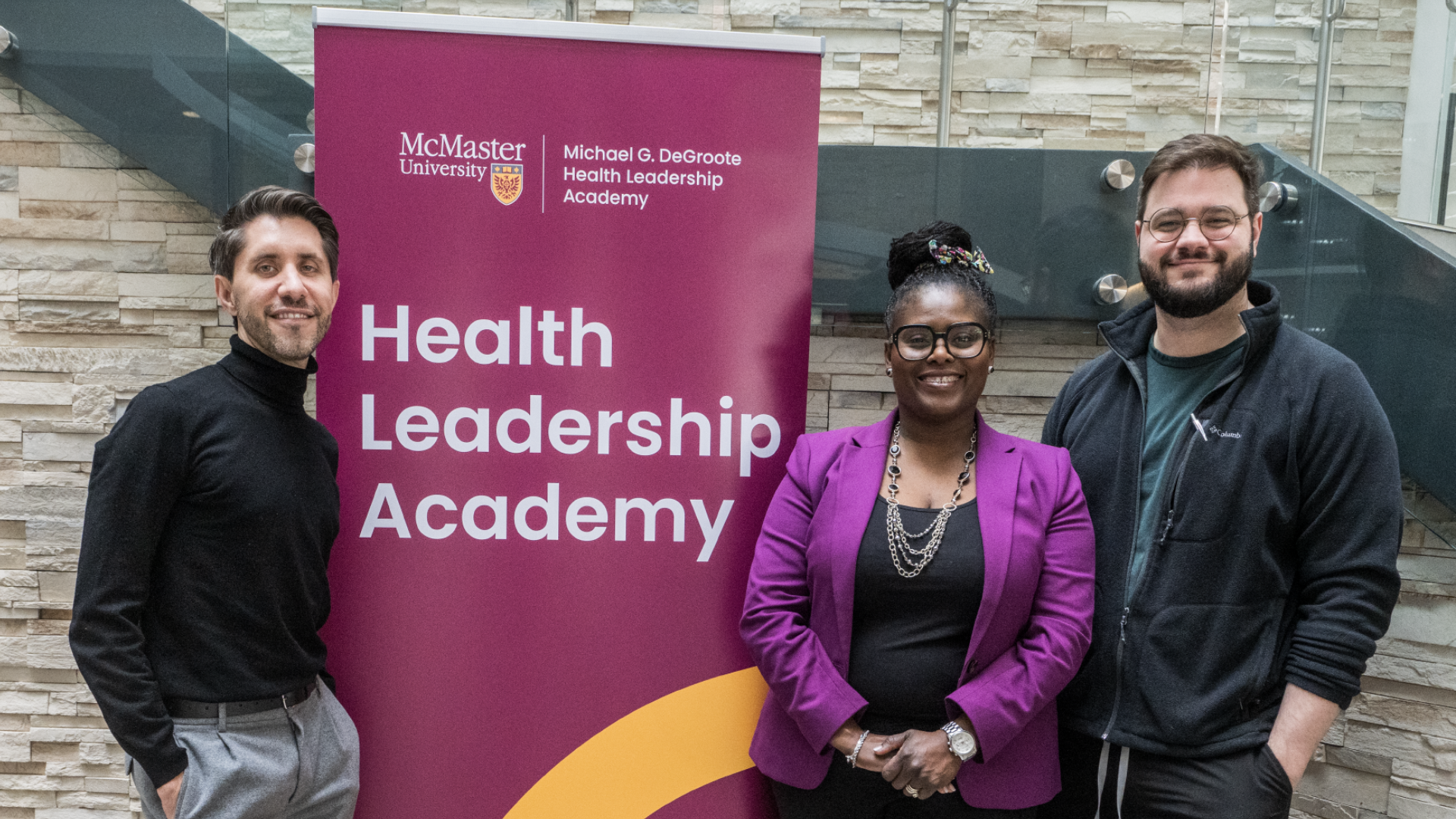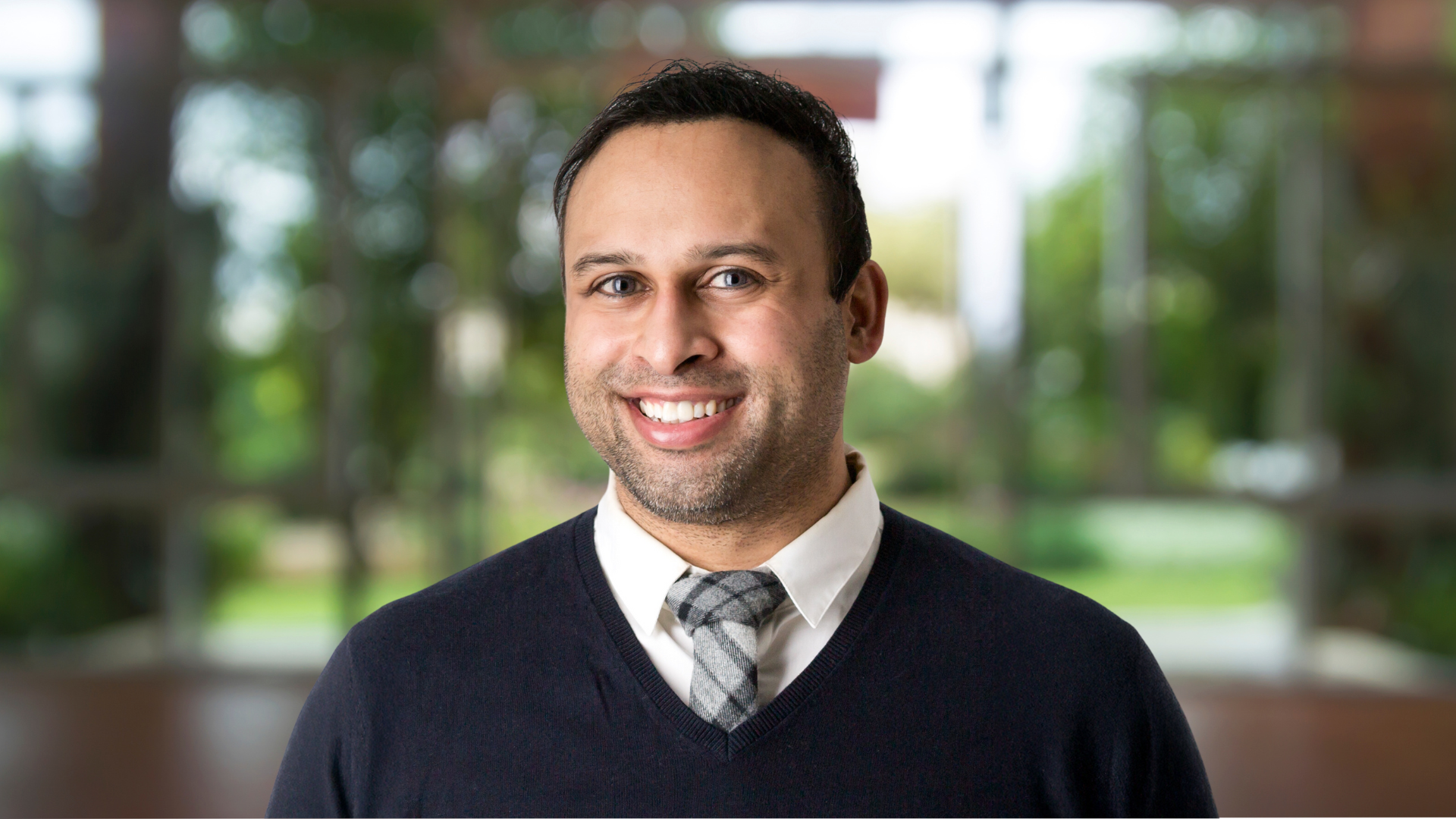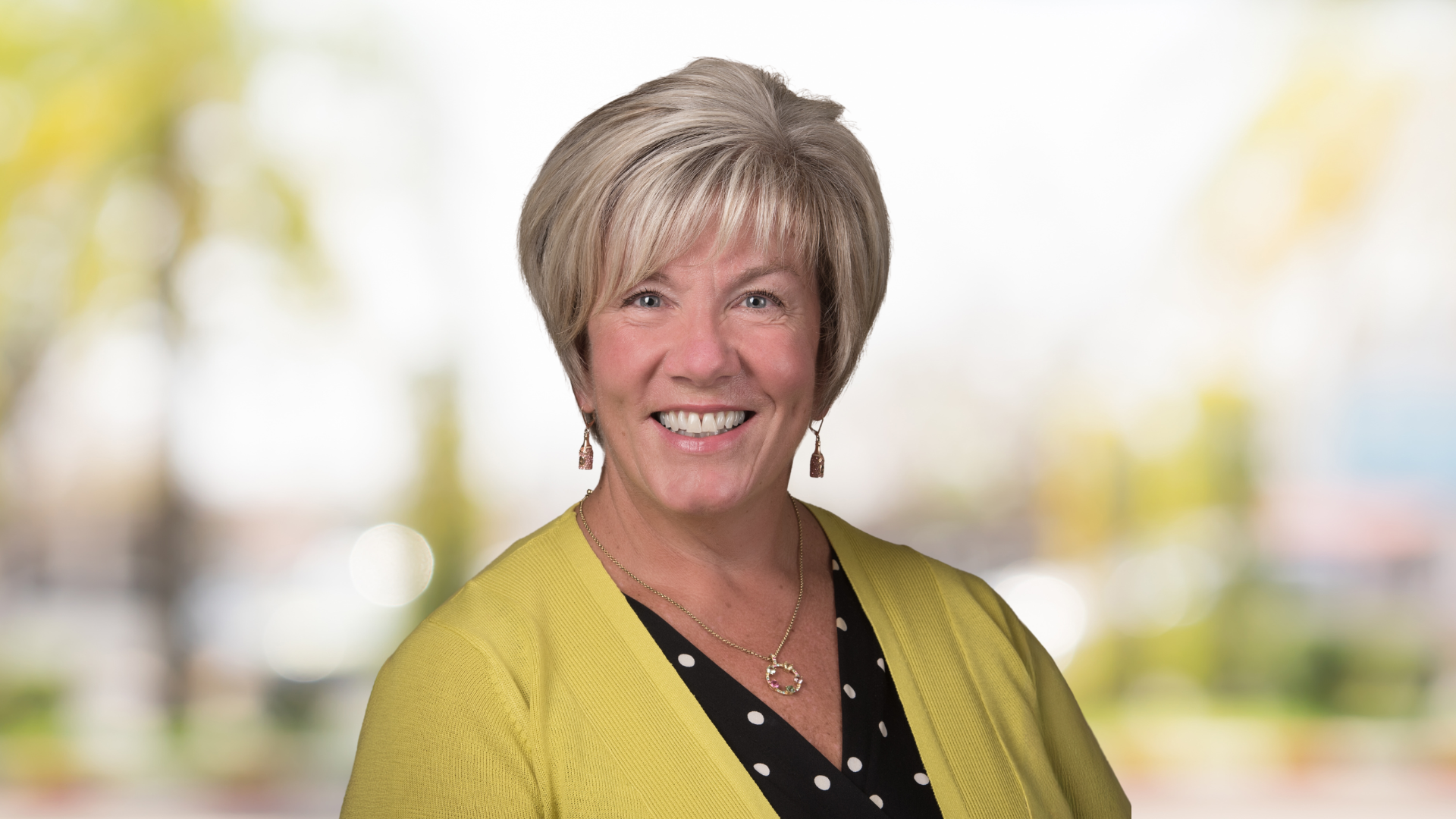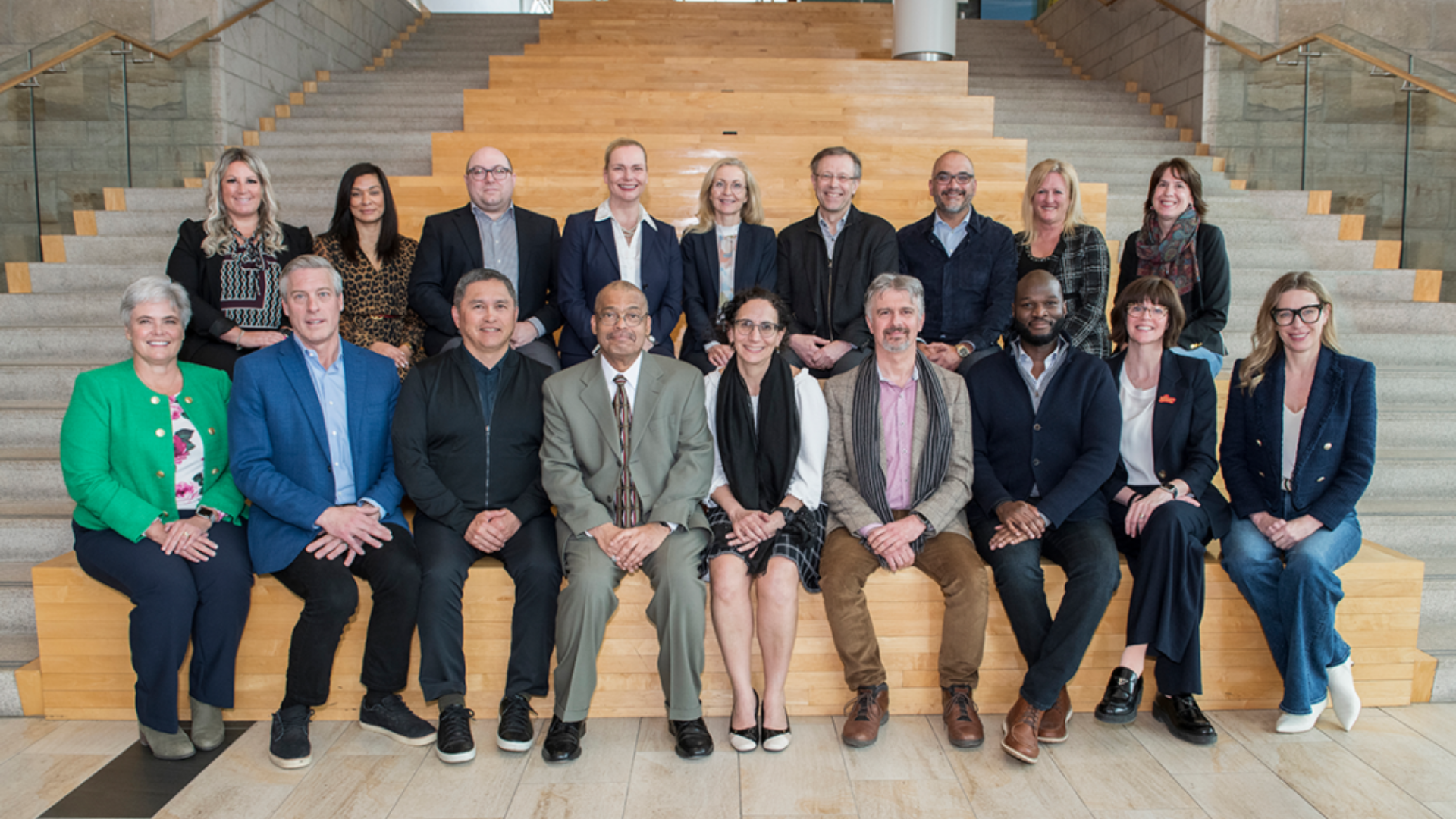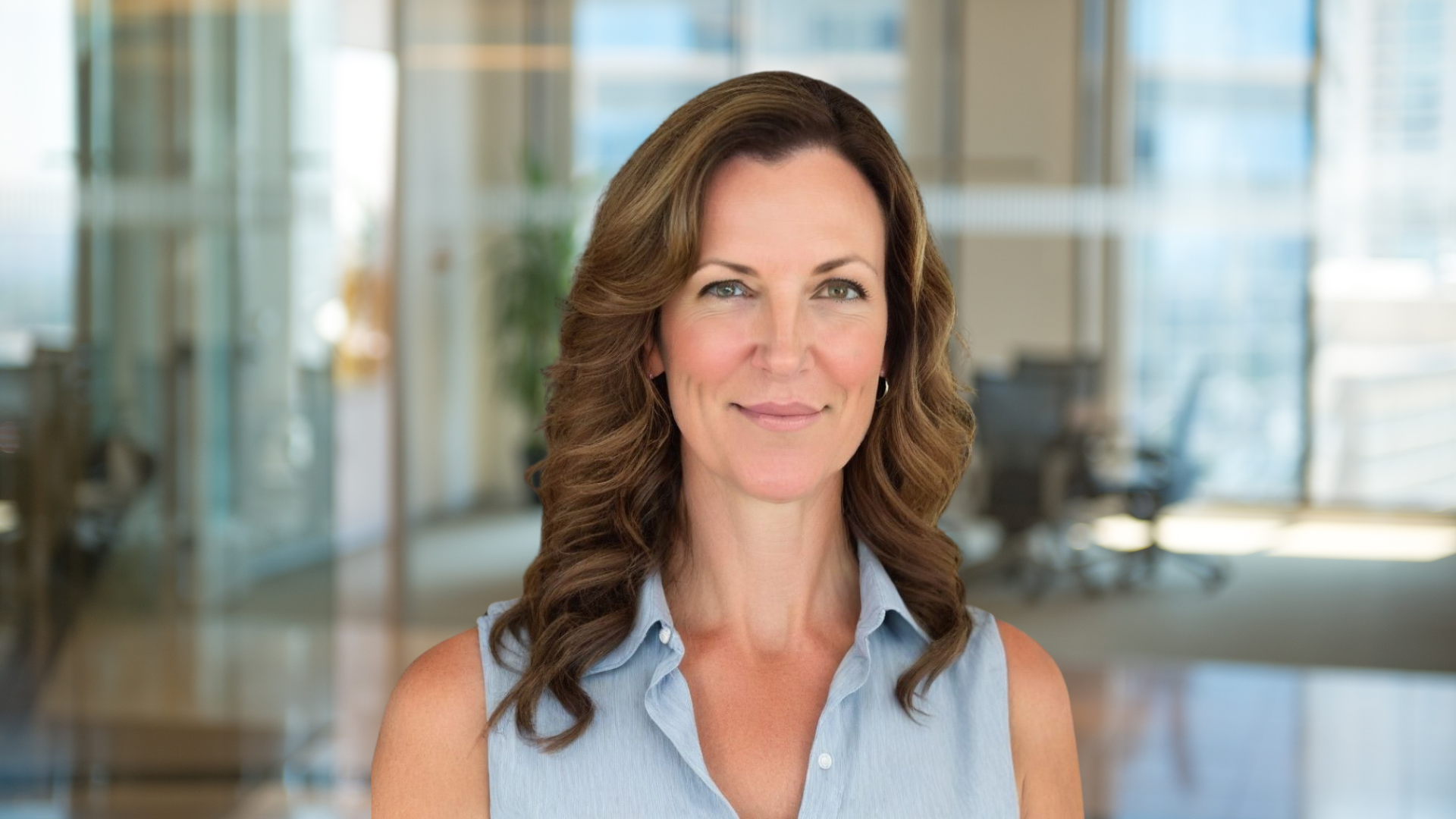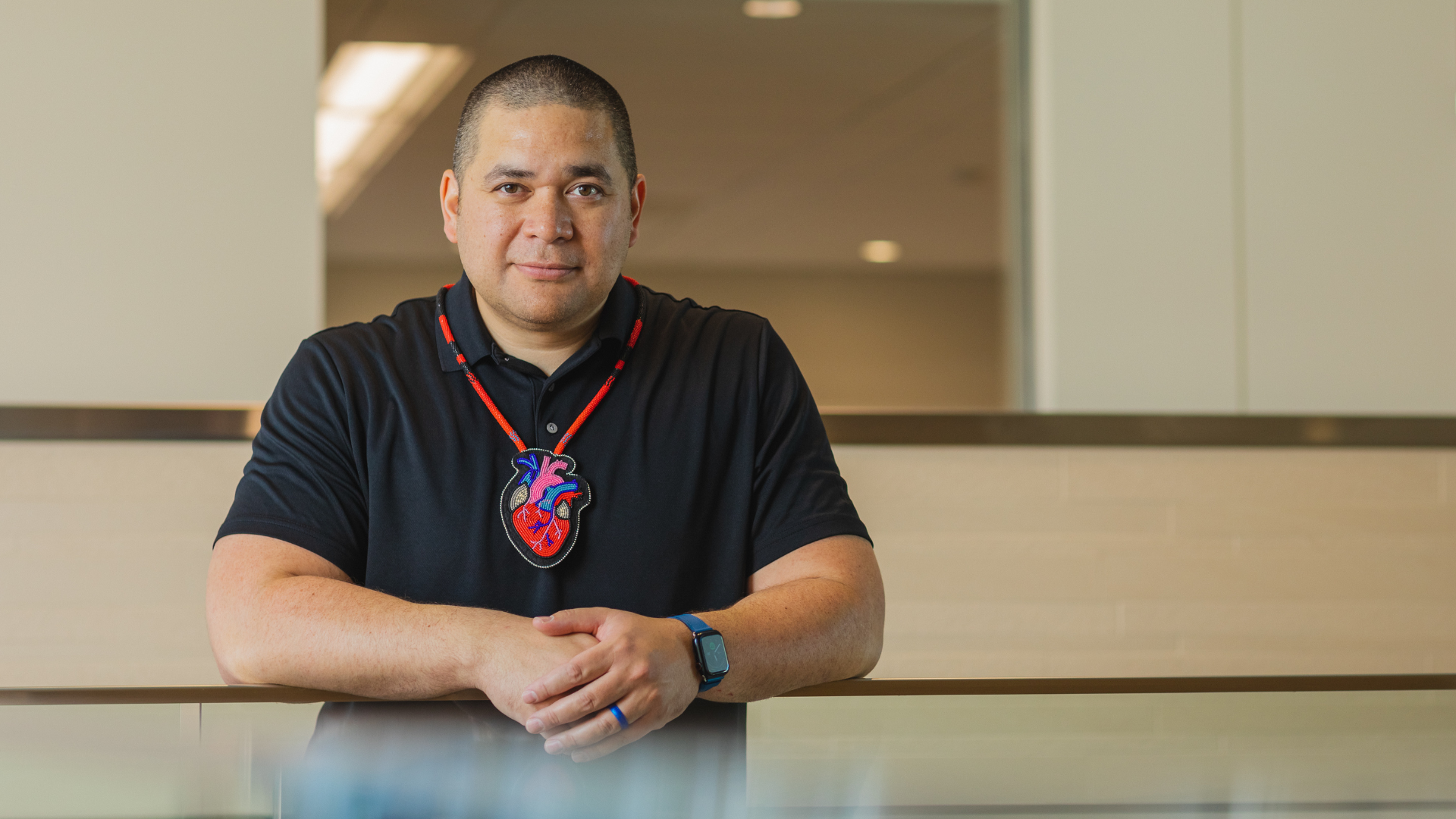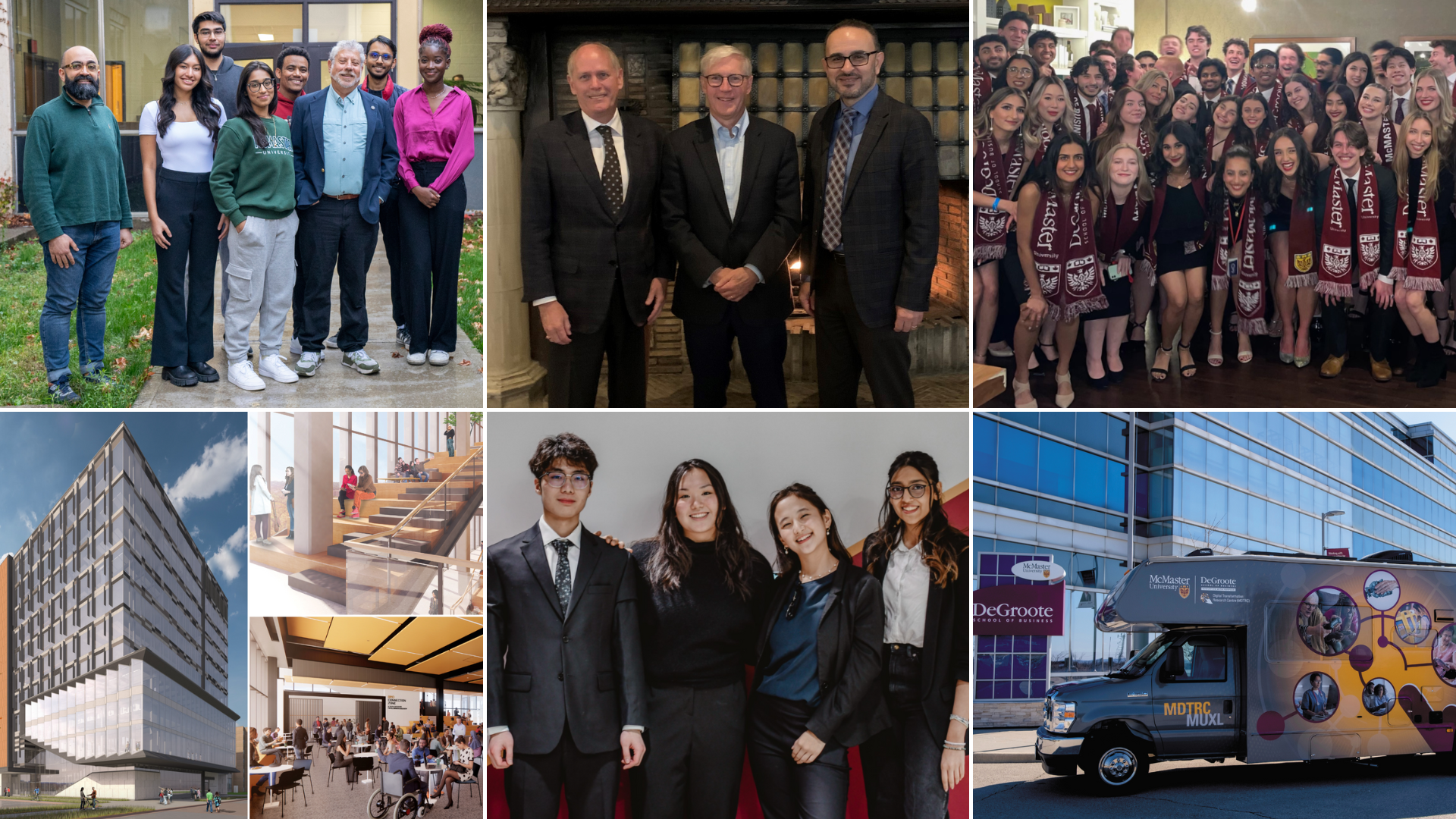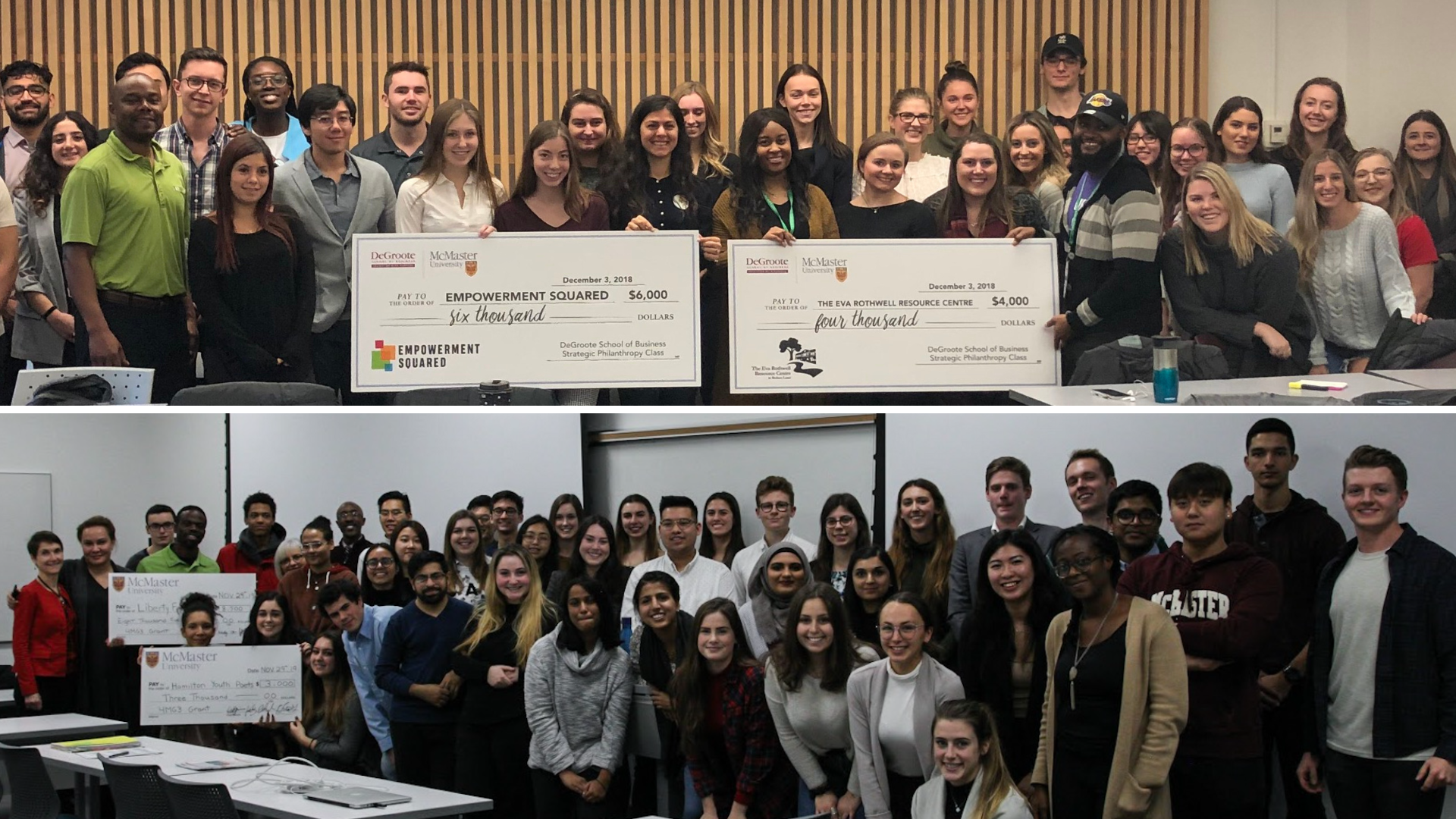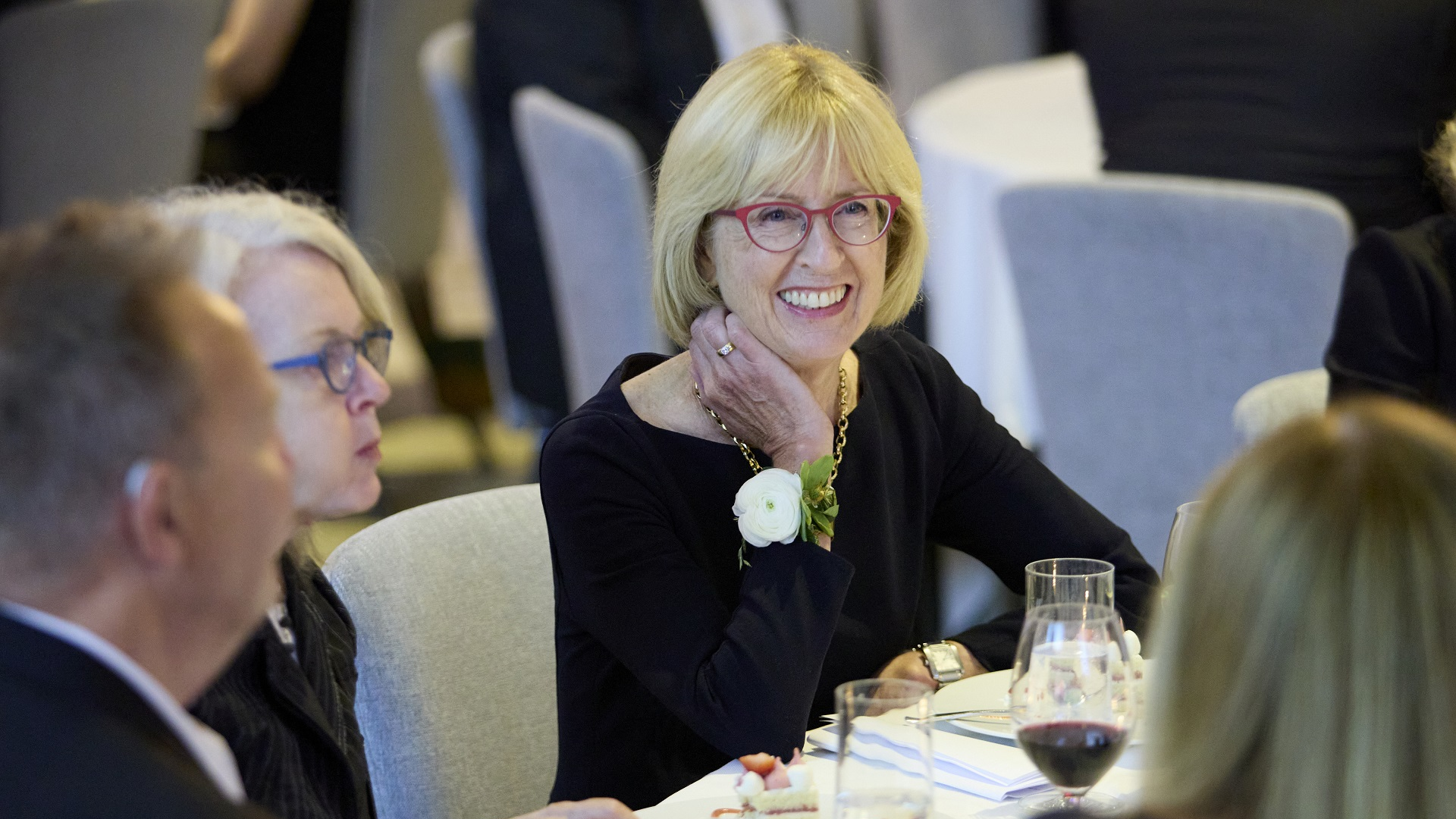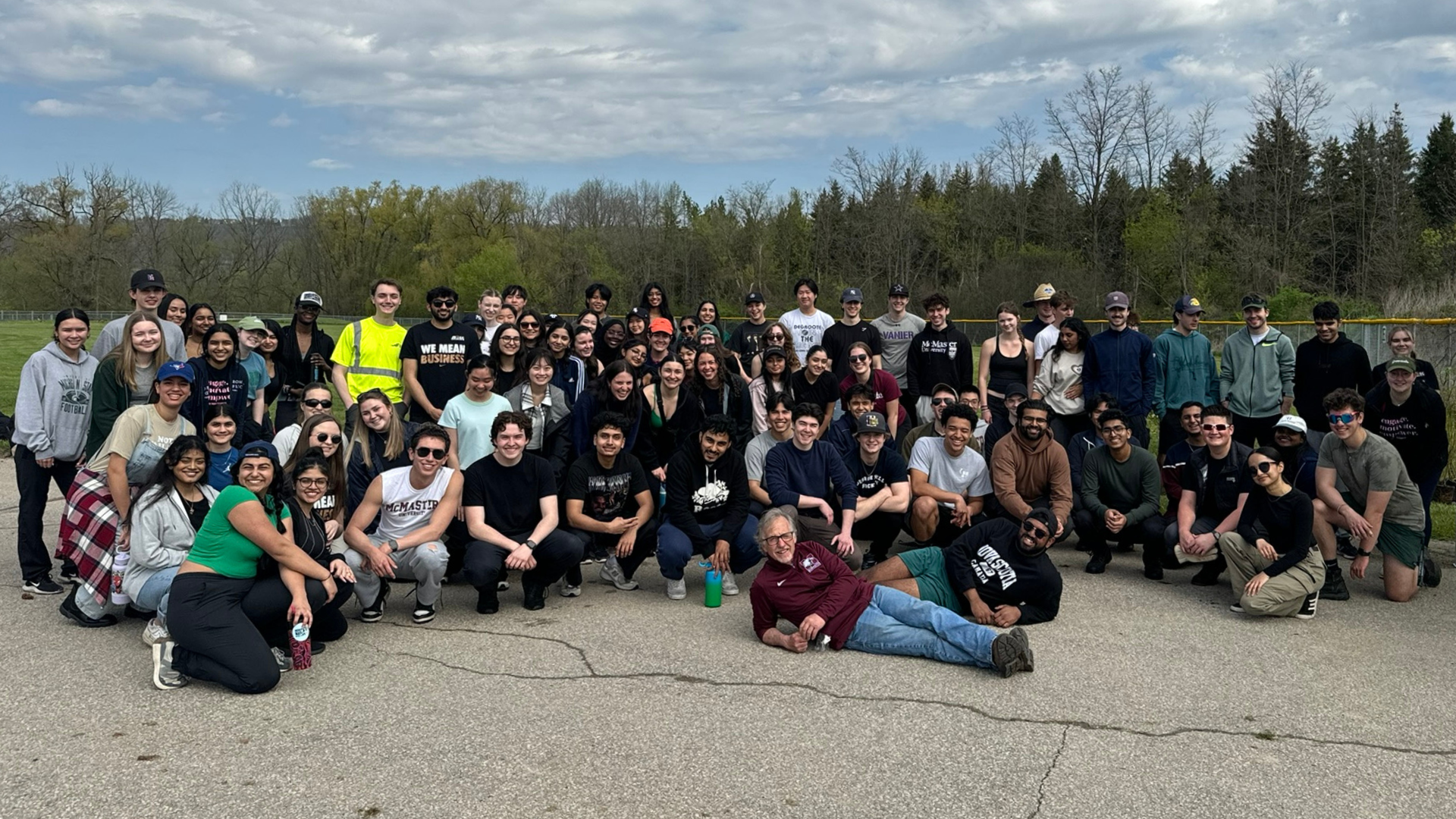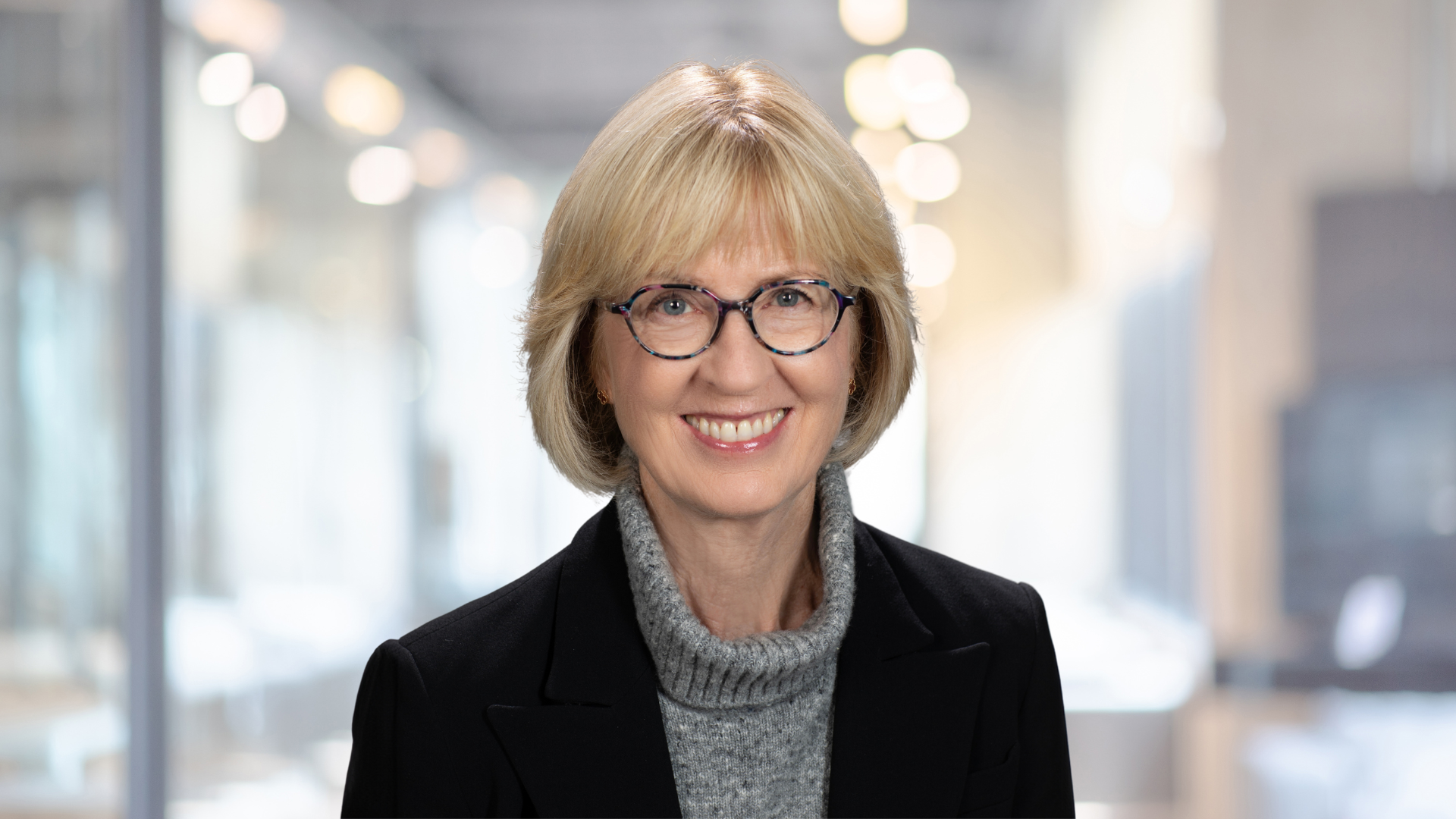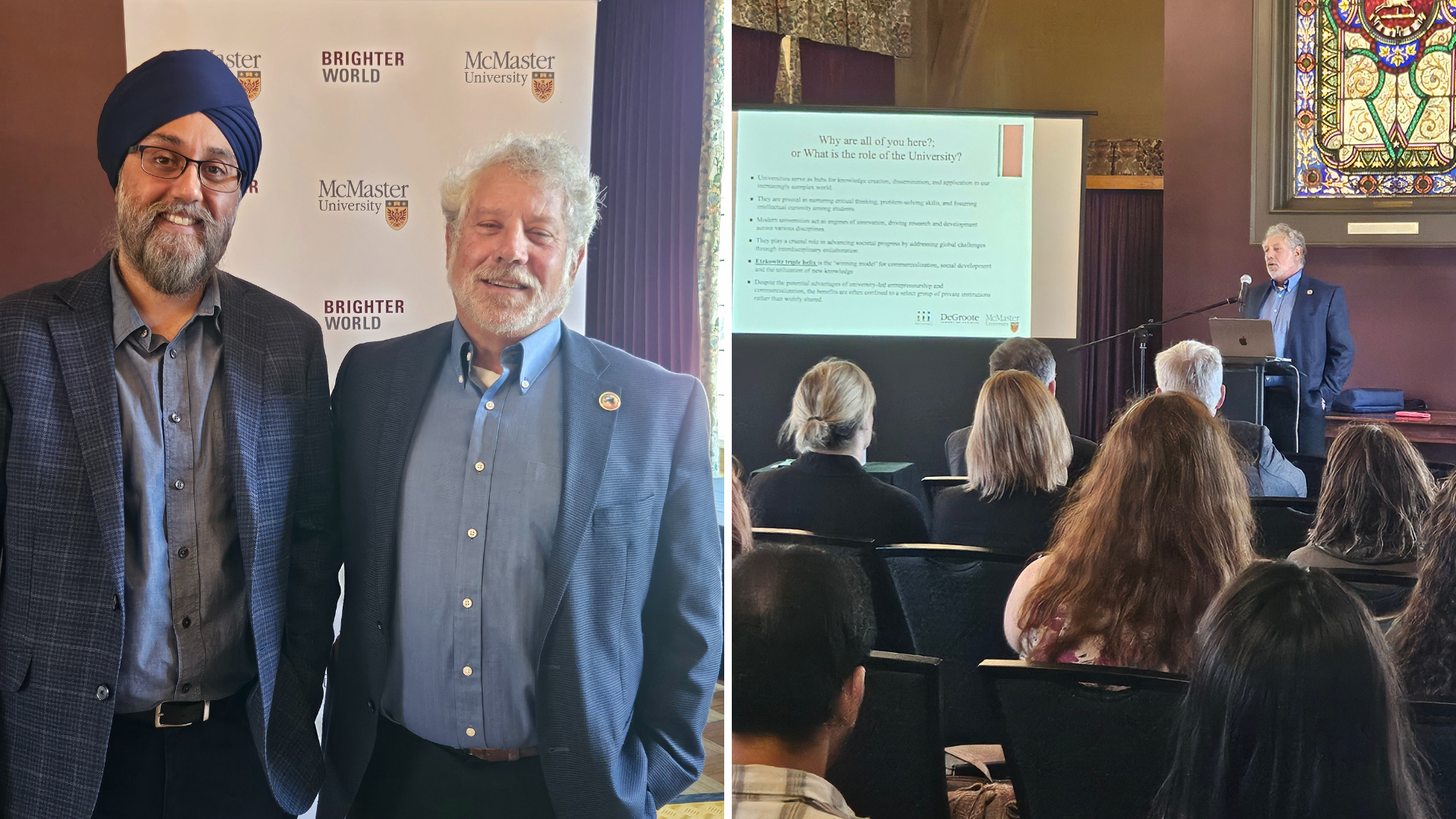ALUMNI STRATEGIC PLAN | ENGAGING COMMUNITIES
Insights Into Healthcare: Reimagining Healthcare From the Patient’s Perspective
February 13, 2024 ·
Contributed by: Meagan Keane and Joanna Williams
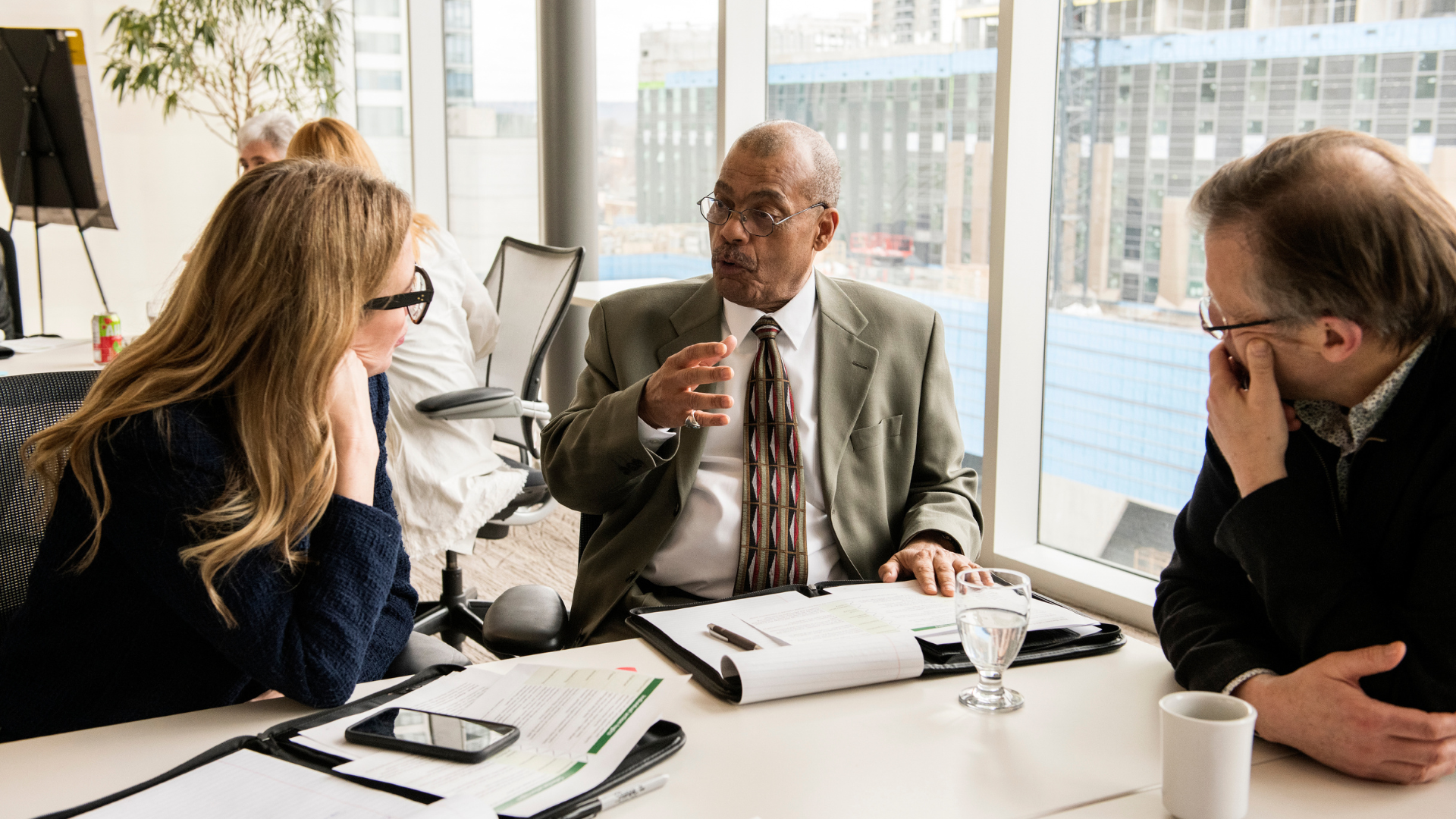
Advocating for patients and working to create better experiences for patients and their caregivers has been the focus of Donald Carty’s career. His personal experiences as primary caregiver for family members in New Brunswick, Manitoba and Ontario over the past 14 years have taught him how to navigate the regional differences in Canada’s heath systems and alongside family the USA health care system in Georgia and Florida prior.
As part of the first National Health Fellows cohort for the Health Leadership Academy, Donald used these experiences to examine how systemic issues affect the experiences people have with the Canadian Healthcare system, and to identify larger systemic issues that play a factor. Participating in this program with fellow healthcare changemakers and individuals who bravely share their perspectives has given Donald insight that he hopes will help him achieve his goals as the Founder and President of Awaken U, the soon to be launched not-for-profit Chrysalis Project and the Co-Chair of the Barrie and Area Ontario Health Team.
How would you summarize your experience in the first cohort of the National Health Fellows within the Health Leadership Academy?
It has been an honor and a privilege. It’s incredible to see this wonderful group of people all come together, very respectful of one another, and full of ideas. But also, some frustrations as well, because there are things that they’d like to do differently but their hands are tied. It’s nice to be amongst a group of people that want to see change.
Albert Einstein said, “We cannot solve our problems with the same thinking we used when we created them”. You can’t. You need to think differently. What we’re doing is changing behavior, giving people the ability and the autonomy to be able to reflect and become aware of something they may not have noticed before, which may make their work a little easier, a little more efficient, and not as routine. It’s really just a matter of changing the way we look at something, like the non-medical factors that influence health outcomes.
And that’s probably the most powerful thing with the National Health Fellows – that we’re creating this safe space where we can talk about these old and new ideas and talk about reimagining things.
One of the most remarkable experiences through this inaugural Cohort of the National Health Fellows was how rapidly it evolved into empathetic cooperation. It was through this approach that a new insight arose. The exchange of each other’s emotions, viewpoints, and requirements, both personally and professionally, it was a striking contrast from the usual kind of impersonal communication. I felt we could dream the impossible and put care back into the system and create a more positive and supportive environment for patients, moving from sick care to health care.
How valuable is it to have these types of discussions with a variety of different people?
I think it’s very important. For me, it’s nice to see everybody from different regions, because Canada is regional and we need to understand that the needs of regions are different. There are 630 First Nations communities for Aboriginal, First Nations, Inuit, and Metis people in Canada. Indigenous people have distinct cultures, languages, histories, and rights, which affect their health and well-being. As a multicultural country, with more than 250 ethnic origins and more than 200 languages spoken. Multiculturalism is a source of strength and diversity, but it can also pose challenges for health care delivery.
Improving access to health care for underserved populations requires addressing the root causes of health inequities, such as poverty, racism, discrimination, and colonization, as well as the specific challenges and needs of each population.
I’m just absolutely fascinated by the character of the Canadian content – our environments, the people, and how we get along with one another, or even how we don’t get along with one another. That’s all part of our national character.
Can you tell us about some of the innovations in healthcare that stand out to you from your time in Palo Alto, California?
The one that stood out the most was Kaiser Permanente (a US not-for-profit healthcare organization). As soon as I walked in, I felt like I belonged there. They had pictures of the diversity of just about every community that they serve in California. I thought what a powerful invitation!
I have not felt that kind of welcoming within our health institutions. I’m not saying that it doesn’t exist. It’s probably there, but because of the cultures that exist right now, people are more task oriented. I call it the “tyranny of the urgent” – we’re involved in a lot of tasks that take us away from connecting with each other.
In their holistic approach to healthcare there was a phrase “Food is medicine”, I loved that, and they had rolled out a program to reduce food insecurity in their members in the early days of the Covid outbreak.
Another fascinating thing was Kaiser Permanente’s AI approach which puts patients and doctors first and aims to augment human intelligence rather than replace it.
How do you see some of the health innovations from Palo Alto being applied here in Canada?
Some of the things that I saw at Kaiser was their use of digital and virtual technologies. The way that they designed the hospital rooms with big screen TVs so that they could offer telehealth right on the TV. They displayed videos with the information patients may want to know about their illness or condition, or what their medicines do, playing right in front of them. I get goosebumps thinking about all the things that we could put in a home environment, which we can do right now. Kaiser really made it clear that it could be done.
How do you see these innovations helping to solve the problems the National Health Fellows are trying to address?
We know that these technologies will solve some of the problems, the idea is how we are going to fund this, how are we going to get politicians, especially people that aren’t facing patients, to understand this. We need to engage people that are patient facing. That’s our personal support workers, whether it’s in the private sector or public sector, nurses, doctors – anybody who’s facing a patient needs to be involved in this.
I think everyone knows that our biggest problem right now is human resources. But if we could bring some of these technologies that are available to the home of the patient, people do not necessarily want to be in a hospital, they want to be at home. Then we’re not going to have to worry about alternative levels of care in hospitals.
I also believe that the administrative burden on family doctors could definitely be reduced using new technologies and innovations.
If we look at just Telemedicine, here are some the gains:
- Online patient screening engagement could help reduce the risk of infection, improve patient satisfaction, and optimize resource utilization.
- Online scheduling reminders could reduce no show rates, enhance patient convenience, and streamline workflows.
- Remote consultation and collaboration could improve access to care, quality of care, and coordination of care.
- Remote monitoring and management could help prevent complications, reduce hospitalizations, and empower patients to self manage their conditions.
- Remote education and training I think this one is particularly important because it would allow care providers and patients to access online courses, webinars, or podcasts that offer information and guidance on various health topics such as chronic diseases, mental health, or wellness. So, this could help improve knowledge, skills, and confidence in health care delivery and self-care and also give the patient much more hope.
From the humanistic and business aspect of healthcare, do you feel that this allowed you to provide an alternative perspective from those that brought a clinical perspective to the National Health Fellows program?
I found them very respectful because I talk from a different place. It gives them an opportunity to pause and to look at things from a different perspective, which is really what this is all about. We’ve had some wonderful conversations about a great number of things. Everybody at the National Health Fellowship, all these people that I have met, are brilliant. They work incredibly hard, it’s wonderful to see such dedicated people involved in this. Every once in a while, we get to see humanity at its best. And I think that this is one of the things all the people involved at the National Health Fellows are all working towards. This is an empathetic collaboration at its best because we’re working more like an organism. And we’re all kind of contributing to the health of that organism while we’re working together trying to heal the larger piece.

